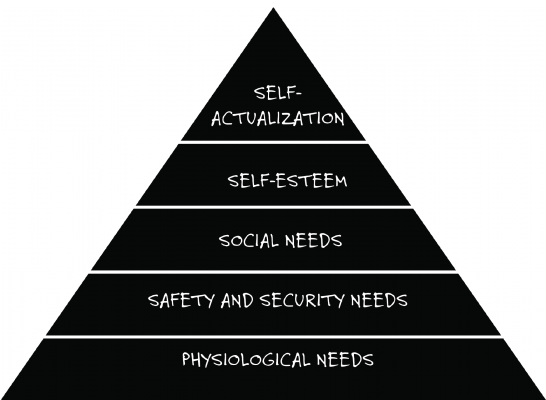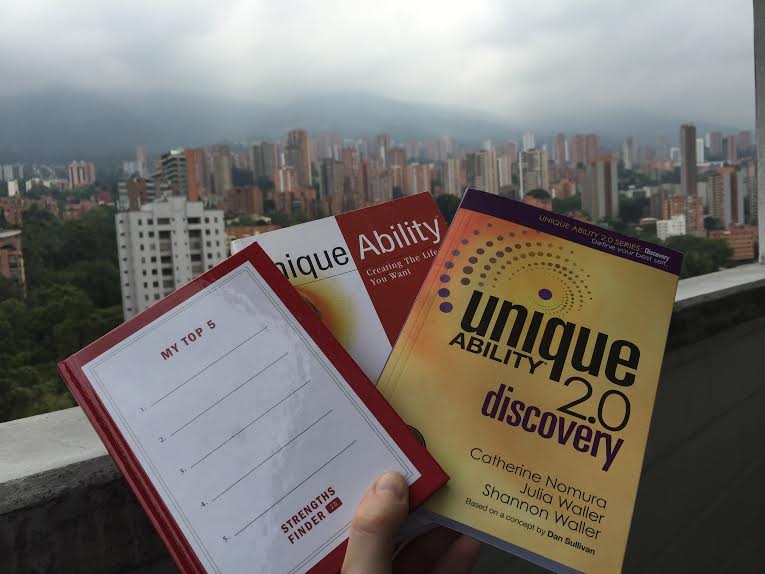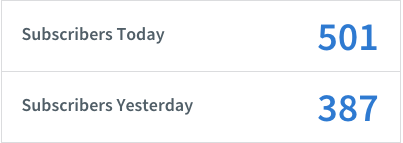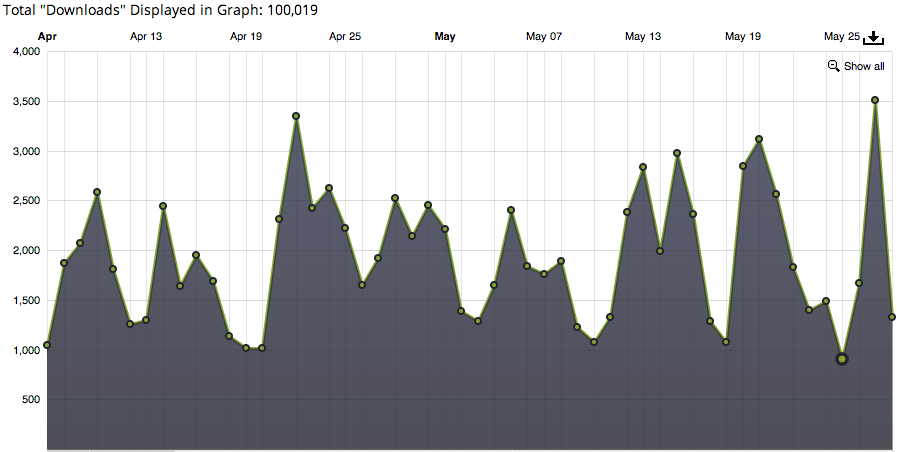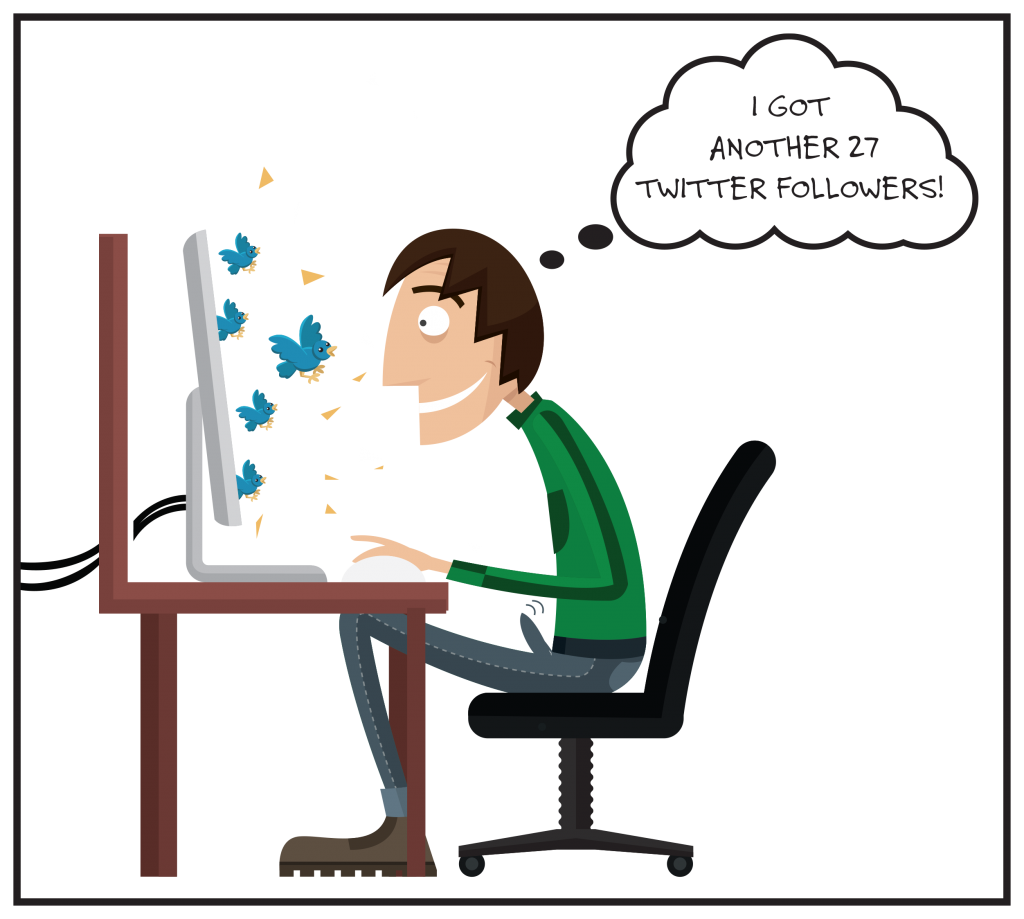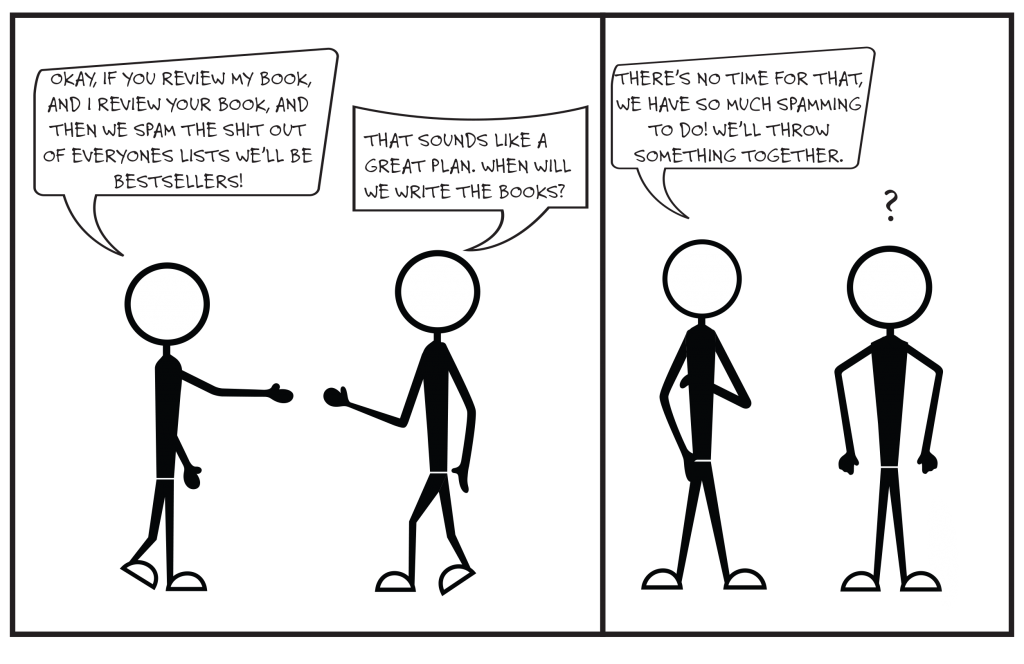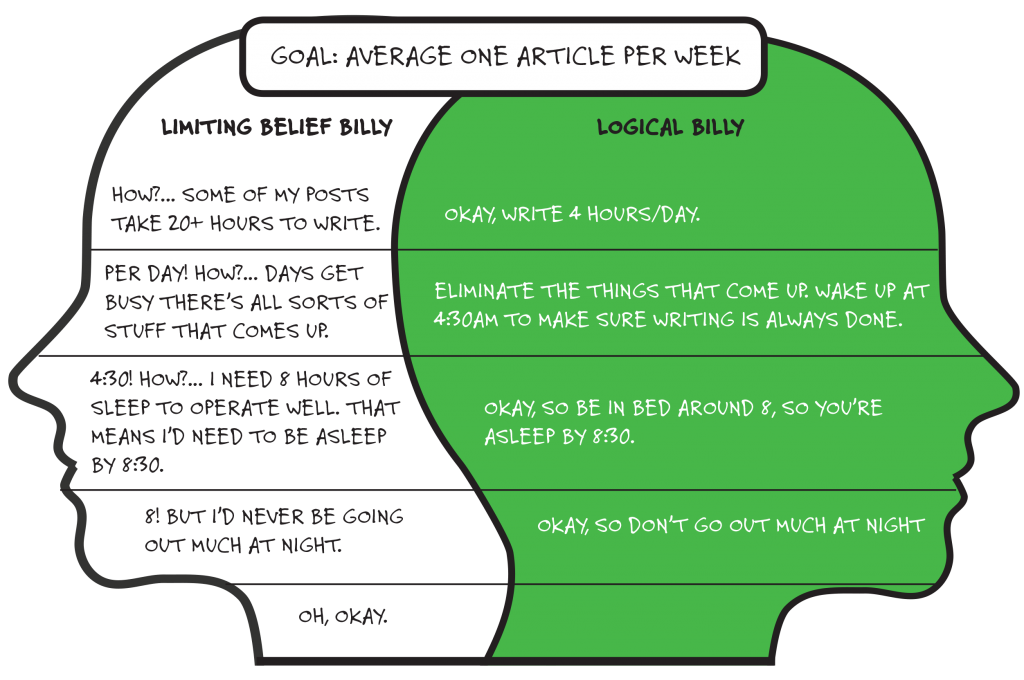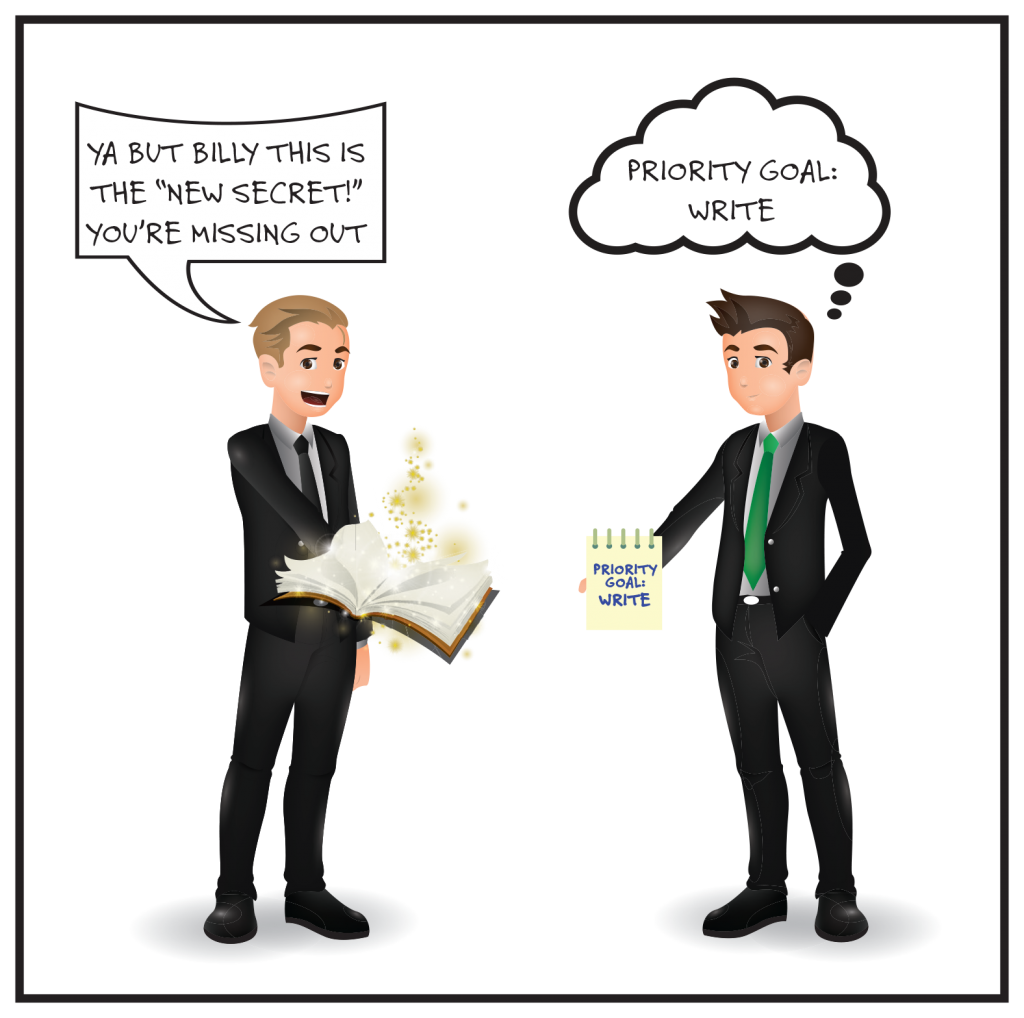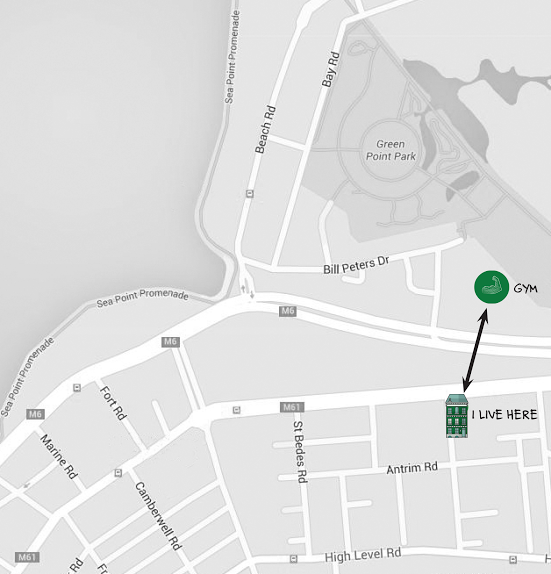“To solve a problem or to reach a goal, you…don’t need to know all the answers in advance. But you must have a clear idea of the problem or the goal you want to reach.” – Orison Swett Marden
After reading the recent post on how to achieve goals, you may be wondering,
“Hey Billy, what are your goals?”.
I normally never share my goals, but decided that I will this year. Partially because my goals are significantly different than I’ve normally done in the past, and not how goals are normally set. Partially because of something I read recently that pushed me over the fence to share them, and the other reason being that my goal involves you. I guess those reasons are all slightly related, but let me explain.
This year, I don’t necessarily have one specific, “I must reach X by year end” goal as my priority goal. As you know from reading my article on how to achieve your goals, having that priority goal is what I recommend doing. I don’t normally advise otherwise for most people. There’s a reason I’m doing things slightly differently this year. The last few years the biggest question for me has been, “what the heck do I want to do?”.
How To Set Goals If You Don’t Know What You Want
I haven’t had business/financial as my priority goal for years, as I would often set a goal that would bring me more success/money or whatever metric I was aiming to hit, and would often find myself very quickly bored out of my mind, and preferring to focus on a priority goal such as fitness, or another non-financially motivated goal that I was interested in achieving.
The problem for me wasn’t that I was setting financial goals that were too easy for me, but that the end result of accomplishing the goal wouldn’t change anything in my life.
See, I’ve already set my life up in a way where I can do pretty much whatever I want each day, and ironically the act of setting a goal that doesn’t change anything for me is doing nothing except eliminating the time I have to do whatever it is that I want to do.
There’s nothing I need that most goals will bring me. If you’re familiar with Maslow’s hierarchy, all my needs are taken care of, so having “more” doesn’t really do anything more for me.
So, that’s easy, just set goals for things you want to do, right? Well, it’s easy if you know what that is. For me, I’ve struggled with knowing exactly what it is that I want. Everyone says, “oh, that’s such a good problem to have. To wake up and do whatever you want to do everyday.” Well, it’s still a problem if you don’t know what it is. Sounds like a good situation from the outside looking in, but incredibly frustrating when you’re actually experiencing it.
In the video game of life, this hasn’t been my favorite level.
I spent most of last year trying not to work on much, and figure out what it was that I wanted to do. I won’t get too deep into ‘purpose’ related content in this post, as this will already be a mini novel on it’s own.
You may find this article insightful if you’re not 100% sure what your goal should be. It’s a common problem that no one seems to want to talk about. Everyone wants to pretend they have everything figured out. No one does, usually the people working hard to give that impression often have the least figured out.
There’s only a few reasons why someone will not hit a goal that they set:
They either quit way too soon because they didn’t see instant results so they assumed it wasn’t working.
They don’t have a plan how to actually achieve the goal, and are too reluctant to invest in themselves by hiring someone who’s good at it to help.
Or they don’t really want the goal deep down. A lot of people think they do, but if they sat down with someone who understands how to ask the right questions many people would quickly find out they don’t actually want what they’ve been telling themselves they wanted.
If you don’t actually want the goal, you’re not going to follow through on it. Now, I don’t mean like kind of want it. Everyone would take an extra $5k/month, but if the goal you set doesn’t change your life at all in a way that’s meaningful to you, it’s unlikely to really motivate you to push through.
There was a quote I read recently that pushed me over the edge to share my goals, as I usually don’t share them outside of a handful of people who help keep me accountable. I’m kicking myself because I can’t find the quote now, but it said something along the lines of it being important to share your goals if you believe that doing so would help inspire, or teach others. The quote itself was way better, and made me think I was doing a disservice by not sharing my goals, and my current process with you.
If you find yourself questioning your goals, or what you’re currently working towards, I think this article could help you quite a bit.
I actually hesitate to share about the struggle not because I don’t want to share it, but because I don’t want anyone having another excuse to use not to hit a goal. I know it’s hard enough for most people to hit goals, so I don’t want to give you another ‘out’ so to speak.
Don’t use this article for that reason.
How I’m setting up my goals
For this year, my priority goal is less focused on just one specific end result, but moreso on certain actions I’ll take. Instead of one yearly priority goal, my priority goals will be set in quarterly intervals, keeping in mind certain things I’d like to achieve for the year, but optimizing the quarterly goal setting for happiness and enjoyment, rather than progress towards one yearly priority goal.
Part of the reason being that in the past I would occasionally begin a project and instead of scaling/reaping the rewards once it started taking off, I’d find myself extremely bored, and even if there was a payoff waiting, I didn’t want to work on it.
We’re normally wrong about what we think we want, and besides the payoff not being a big driver for me, I felt I needed to set up my goals and my life differently to increase the chance of working towards something I truly wanted.
We either find out if what we are or were working towards was what we actually wanted, through achievement, or in learning more about ourselves.
If you agree with me that we’re normally wrong about what we want, then you would also agree with my belief that setting long term goals, if you have not spent the time to learn much about yourself, is a monumental flaw.
Many people spend their lives chasing goals they don’t actually want, but the chase keeps them too busy to even realize it.
So, I’m going to share with you not only my goals, but more importantly the thought process and the actions that led me to setting these goals.
I’ll show you what I did to try and figure out what I should be doing, what I learned from that, what I considered based on what I had learned, what I decided after giving proper consideration to each of the possible routes, what I’m specifically doing after making that decision, and what to expect.
What I did to find out what I wanted to do
Well, a lot. But a little.
See, one of the biggest changes I made was elimination of things. I knew that if I was ‘busy’ like everyone else, I wouldn’t gain much clarity about what it was that I wanted to do. So, I started working less. I traveled to Australia for a few months and just tried to do a better job of enjoying life. I learned to surf(I’m still a rookie!), worked less hours, and had a good time. It was a little experiment both in working less, and seeing if I enjoyed traveling for extended periods of time.
My ‘work’ was on figuring out what I wanted to do.
It wasn’t that I wasn’t doing anything. I did a number of ‘work’ things throughout the year, but didn’t usually work on them with the goal to create some big business venture from it, moreso if I was getting some enjoyment from it and adding value to people. When I think back on the year I don’t feel like I did a lot, but it’s because I wasn’t really forcing myself to do things I didn’t want to do. Throughout the year I grew an instagram audience for fun, showed others exactly how to do it, I co-wrote a book that’s not yet released, I helped other people start some cool businesses, or improve the ones they had, I lived in multiple different countries, lived at the beach with my family for over a month, met a lot of cool people, and more.
But, as far as having a direction for the year, I purposely didn’t have that the way I’d normally advise doing. My direction was on trying to figure out what direction I wanted to go.
It’s a good problem to have, but like I said, it’s still a problem. I’ve put myself in a great situation to be able to do whatever I want in life and well… now I just need to figure out what that is.
I even went out to San Francisco for a bit and debated creating a large start up. I have a friend who’s been extremely successful, and he urged me to only come up with ideas that had the potential to become nine figure companies. So, I ran a little experiment and did just that. He’d been telling me for years that I was passing up a lot of money, and impact not using my skills on a bigger project. I’d always started niche businesses in the past, and wanted to explore other options. Five, six and seven figure projects are fine, there’s nothing wrong with sticking to niche businesses… but I wondered if I was bored because I wasn’t pushing myself with what I was capable of. Not just the money side, but impact.
As the year went on I did less and less. I’ve considered doing some speaking and got offered three speaking gigs during the summer. It was cool to be offered some great opportunities, some of which I would have got to speak with some very big names, and made some great contacts. And well, I turned them all down. They would have been great for the ego, but if you really want to know anything about yourself, ego must be eliminated. I asked myself, “would doing speeches help me figure out what I want to do?”. No, they wouldn’t. I probably would have enjoyed them, but I wouldn’t have figured out what I wanted to do by talking about something I already know.
I did a handful of things through the year to learn about myself while helping others. For example I sent an in-depth survey to ForeverJobless subscribers and asked what they were up to, what they were struggling with, how I could help them, and more. I then set up dozens of calls with people from those surveys to try and help them. Both because I wanted to see them do well and knew I could help, and also because I was curious to see how much I would enjoy it, and which parts specifically.
By the end of the year, I had basically eliminated all ‘work’, and found myself living in Medellin, Colombia, focused on optimizing happiness. I mean, I went to the extreme to not work. My goal was to wake up and do whatever I wanted each day. I didn’t know what that was, but unless I made time for it, how would I find out? I took spanish lessons, played basketball, wrote, read, worked out, hung with friends, you name it. But I wasn’t doing much of anything I didn’t want to do.
My daily schedule was basically reading, writing, and thinking. That’s what I did each day. If something fun came up I did that, but otherwise I focused on learning more about myself, and what I wanted. It blows my mind how few people make time to actually know themselves. Most stay so busy that they don’t even know that they don’t know what they really want.
“To know thyself is the beginning of wisdom” – Socrates
Besides reading books some of the reading I did was from old journal entries, which was actually very helpful because it helped me determine what I was doing when I was enjoying life and what I was working on, and when I wasn’t, so I could try and figure out how to best spend my time. I compiled a list of things I enjoyed throughout the year, and spent time not just figuring out how to do more of those things, but in understanding why I got enjoyment from them.
Some of the reading I did included several exercises that help you to find your strengths.
Like I mentioned in the beginning, I won’t go too deep into purpose in this post- I plan on writing on it in the future, but knowing your strengths is a very important variable to knowing what you should be doing, and very few people know their strengths well. It’s easy to think you do, but since what we’re extremely good at often comes natural to us, it’s not easy to realize what you’re incredibly good at isn’t so easy for others. You don’t think of a normal skill of yours as incredible because it’s not difficult for you, which actually makes it incredible.
I reached out to some friends and family to try and uncover strengths in myself that I might not have been aware were strengths.
Around the same time, I got a few emails from friends who needed business or life advice. I found myself really excited to try and ‘solve’ the problems they were having. It didn’t feel like work. Several times I ended up turning what could have been a few sentences of advice into insanely detailed breakdowns mathematically proving the answer for them. One of them ended up being over 8,000 words calculating the expected value of every project a friend was working on or considering working on, to know what he should ramp up and what to scale down or eliminate.
Outside of writing some things for friends, I spent a lot of my writing time on subjects/styles that were significantly different than I had written in the past.
To end the ‘what I did’ section, let me share something I wrote to myself during this time:
Right now it’s Friday night and I’m sitting in a cafe in Medellin. I’ve got my earphones in playing concentration music. Everyone walking by on the street are headed off to enjoy the weekend. The people around me in the cafe are all talking spanish, so I couldn’t understand what anyone was saying even if they wanted me to. Talk about elimination of distractions. Now, if I was back home near my friends and in my normal routine, I’d be more likely to be out right now, or watching movie or something. I know for me self discovery/writing what I’m writing is important. I don’t know what the results will be from doing so, but I feel like they’ll probably be significant. Maybe not in the way other people look at significance. Or maybe so. I’m not sure, but I’ve eliminated distractions for the possibility to find out.
What I learned from the journey of self discovery
So, what did I learn from doing all of this? Well, a lot.
Socrates demonstrated a long time ago, that the truly free individual is free only to the extent of his own self-mastery.
Where to start…
I realized that I’ve been “living the dream”… but I’m not living it. I’m always thinking of what the next dream is.
For a long time now I’ve had my life set up in a way that allows me to do what I want, but because I haven’t focused enough on self discovery, I probably didn’t actually know what I wanted. As frustrating as it was to realize and to try and solve a seemingly unsolvable problem, I realized it’s probably a good thing because in my quest to figure out my own solution, I learned that many people who think they have the solution, don’t. In some sense I was happy I was experiencing this frustration now, rather than going through most of my life assuming I had an answer, and then figuring out one day while I was old that I did it all wrong. Many ‘wise men’ operating under the guise that they have things figured out, are only wise in staying ignorant to the fact that they don’t actually know what they think they ‘know’.
As mentioned I did several exercises throughout this process.
One of the tests I took told me that my two biggest strengths were “analytical” and “futuristic”. This didn’t necessarily surprise me, it’s always been relatively easy for me to break down ‘complex’ things into very basic solutions, as well as logically thinking ahead to predict what’s likely to happen based on variables.
Here are some of the things the test told me:
- Choose work in which you are paid to analyze data, find patterns, or organize ideas.
- Find the best way of expressing your thoughts: writing, one-on-one conversations, group discussions, perhaps lectures or presentations. Put value to your thoughts by communicating them.
- You might excel in entrepreneur or start-up situations (hey would you look at that!)
- Seek audiences who appreciate your ideas for the future
- You inspire others with your images of the future, yet your thinking may be too expansive for them to comprehend. When you articulate your vision, be sure to describe the future in detail with vivid words and metaphors.
- Your futuristic talents could equip you to be a guide or coach for others. Unlike you, they might not be able to see over the horizon. If you catch a vision of what someone could be or do, don’t assume that he or she is aware of that potential. Share what you see as vividly as you can. In doing so, you may inspire someone to move forward.
Both sections told me to find a partner… essentially an operations manager. It’s something I’ve thought about in the past. Basically someone smart who loves taking action and wants to be the operator, but may not have the analytical/futuristic components that I thrive at.
(side note: It’s funny, everyone wants to be a start-up entrepreneur because it’s ‘hot’, but if someone’s wired as an operator they’d be substantially happier and make significantly more money if they embraced it and partnered their unique talents with someone who has the other stuff figured out. There’s a significant demand for amazing operators. Being a start-up entrepreneur is publicly hot. Being a great operator is secretly hot.)
Most people think they know what they are good at. They are usually wrong. Most often, people know what they are not good at- and even then more people are wrong than right. And yet, a person can perform only from strength. One cannot build performance on weaknesses, let alone on something one cannot do at all – Peter Drucker
While the strengths that were revealed didn’t necessarily surprise me, what did give me an “aha”, was the fact that I’ve spent so little time on those things the last few years. I’ve literally spent almost no time on my top two strengths.
This is why it’s so important to make time and space to analyze yourself. It seems so obvious right?…just work on what you’re good at. Well, first you’ve got to know what that is, and second…if you’re so busy doing whatever takes up all your time, you’re unlikely to realize how little time you spend doing what you should actually be doing.
One should waste as little effort as possible on improving areas of low competence. It takes far more energy and work to improve from incompetence to mediocrity than it takes to improve from first-rate performance to excellence. – Peter Drucker
What I learned from coaching calls that I did:
I learned that I really liked helping people that would take action. I mean, I already knew I liked helping people. It’s something I’ve always enjoyed. But, there were sometimes when I helped people that I didn’t get much joy from it. I’d feel drained and not understand why. From helping people on the calls, and through email, or in the Incubator or mastermind, I figured out the difference for me. If I help someone and they get value and will take action, that makes me really happy. Partially because I know their life can change because of it and I’m excited to hear about it when it happens- it’s similar to the feeling of a vacation you can’t wait to go on: It may not hit the calendar for a little while, but you know it’s coming, and can’t wait to experience it. Partially because it’s fulfilling knowing some insight I gave them will help improve their life.
When I don’t feel like someone will take action, it’s really unfulfilling and I just feel drained.
Seems obvious, but it’s something I initially couldn’t figure out…why did I love helping people, but feel drained some of the time? That was why. If I spend time showing someone how they could change their life and come away feeling like they’re not going to do anything, I feel like the little time I have is wasted. Paid or not, I don’t like the feeling. You can’t pay me to hate my life.
When I talk to someone who appreciates the value they get, and will use it, I get really excited for them and feel energized.
What I learned from fun experiment projects:
I learned that I enjoy solving things, and then I’m bored. There has to be new challenges. Where most people would be excited that they figured something out and it would be wise and profitable to then scale it up, I am bored and ready to go onto the next thing.
For a simple example, I started an instagram account and decided to figure out how to scale it, and quickly grew an account of close to 100k followers. In a personal ‘30 day challenge’ I grew by over 40k followers, and got over 9k email leads, in one month. The most obvious thing to do would be to scale it up and go get a million followers and 100k+ email leads. That’s a normal, and profitable thought. Scale it up and print money off it. Instead, my first thought was, “meh”.
It was the same when I grew my podcast to 100k downloads in 7 weeks with a ‘baby’ email list at the time. Normal person thought: “wow, I can easily grow this to millions”. My thought, “Is this making a big enough difference?”.
I think part of it being like I mentioned above, that I really get excitement out of helping people who will take action. So, it’s somewhat irrelevant to me how many people I reach if I’m not helping them change their lives. I’m less concerned with quantity. If I have a platform of 1 million people and none of them do anything, I’d rather have an audience of just 100 people, who all take action and change their life.
I think the other part of it is due to the fact that the success of those things wouldn’t change anything for me. Others have the mindset of “I’m going to grow an audience and sell lots of shit to people!”. A popular way of thought and not necessarily wrong, but not ideal for me. ForeverJobless has likely been the most undermonetized site in the space, and it’s not really accidental. Like I mentioned in the first part, money and ego don’t really act as the drivers for me. Just chasing money goals for the sake of money isn’t motivating as I already have the means to do what I want. Plus the ego part is irrelevant to me. Other people are fueled by the size of their platform.
You can see them light up when they talk about it. I think I would have been the same way a few years ago, but that doesn’t drive me.
It’s not that I don’t like money. Far from it. It’s just that it’s far less meaningful at a certain point. The diminishing returns help crystalize what money and ego may distract you to work on.
The one common theme was the things I enjoyed the most were related to high level strategy/discussions, and/or figuring something out that’s interesting to me and/or helpful to others.
For example the exercise I did in figuring out opportunities that had the chance to become nine figure companies was fun for me. The idea generation was fun. The due diligence was fun. The finding out that I was successful at selecting some pretty good ones was fun, as I discovered in due diligence for two of the ideas that there were a few people already attempting to do what I had thought would be of value and had already raised eight figures to try and solve it. So, the ideas were clearly in line with having the potential to become nine figure companies. I then enjoyed trying to figure out why those companies hadn’t been successful yet and weren’t on the map, and formulating strategies based on my findings. I do things like that for fun.
—–
Elimination of distractions is +EV
A big lesson for me was learning what I was capable of when I eliminated all distractions. I don’t think you necessarily need to take it to the extreme like I did in moving to another country and eliminating all work, but I surprised myself with what I was able to accomplish in doing so. There was one week when I was in Colombia where I wrote close to 18,000 words. And I don’t mean like rambles of words just to be able to pat myself on the back for a high word count, but six in depth articles, some of which I think was some of the best writing I’ve done(one of which has been posted so far: sunk cost fallacy).
The more I write, the more I discover. – Unknown
I can remember that being the best week I’d had in a long time. I didn’t really do anything except write that week. I think part of the reason I had fun was I was writing on things I thought were interesting or valuable. Much of the content was significantly different than writing I’d done in the past.
It’s easy to subconsciously trick yourself into writing(or swap out for whatever you’re doing) for what others think they want. I learned I had a lot more fun writing content I knew people needed, even if they didn’t know they needed it. Eliminating the care for money helped make it easy to write what I wanted.
One thing I’ve learned about myself in this process is that I enjoy teaching people to think more optimally, in a way others aren’t teaching, or explaining optimally. I have little to no interest in sharing the same exact message someone else has, even if the opportunity is good. I get more excitement in changing the way people think, and helping them see things from a perspective no one’s shown them before that can add value to their lives.
On top of that I want to spend time on things that are important and meaningful. A part of me felt like creating the best course on Instagram was like becoming the best t-ball player. If someone wanted to crush it on instagram, if they signed up and took action they would, but I feel the opportunity cost of me solving something like that for people is at the expense of me solving something bigger, or more important.
No matter what it is, I learned that no matter how much I want to help, I need to stop getting sucked into investing time if it’s not with action takers.
Non action takers won’t do anything with the time you invest, and normally want it for free, so it’s not helping you or them. Action takers will reap rewards for you and them both now in the future, and I don’t just mean monetarily. It’s fulfilling to share a part in people’s success.
While I learned a lot about what I liked and didn’t like in the process, I still had a lot to consider.
What I considered
- When my main strengths came up as analytical and futuristic, my first thought was getting involved in VC or private equity, as I’m very confident I’d have an edge in those fields.
- Real estate
- Following through on the ‘9 figure business opportunity exercise’, and starting one of them.
- Dating company: I got a few interesting opportunities presented to me- one of which was to run a new dating company. Dating is one of the most inefficient markets there is, and since I’m single I understand the pain points of current dating solutions, and it’s something I’d love to see ‘solved’. It intrigued me quite a bit because of my own personal desire to have dating/relationships become much more efficient.
- Publish a book I’ve been considering writing for a while, and more articles. I think most of my best content is unwritten, or at least unpublished. I have all sorts of private posts that I’ve sent to friends or students, or posts that I just never published. Many topics I think are important are not talked about.
- Focus on building a huge platform, and then write a best seller.
What I decided
With the investing stuff, I thought I might lack fulfillment from doing so. I wasn’t going to change much from being involved, I’d just make whoever I was investing with/for more money than others could. That’d be fun for a while, to ‘beat the game’ so to speak, but knowing how I’m wired as soon as I knew I could beat it I’d probably just be looking for the next challenge. The monetary payoff would be good, but there needed to be something more to it for me.
It’s the same kind of world I was in back when I played poker professionally. When I knew I didn’t want to play anymore, I debated going into something like trading. Then I thought about it and it was the same thing as poker, just with a higher ceiling. Investing is the same. I know I can beat the game, but… so what? If I play the game nothing improves for me, or the world. I do something for money, and would basically be in the same position, just with higher numbers on bank statements.
My strengths fit in that world really well, so who knows maybe I’ll be involved somehow one day. It won’t be now though.
The professional turns down roles that he’s done before. He’s not afraid of them anymore. Why waste his time? – Steven Pressfield
Real estate- I checked out my brother’s operation on the east coast right before I went to San Francisco, and there’s definitely plenty that excites me about real estate. However, even though I’m interested, I couldn’t get excited enough to make it the thing that I did right now.
Starting a nine figure company- I uncovered some interesting opportunities to attempt this, but for me I didn’t think getting into an opportunity just because it’s an opportunity would drive me for very long. The challenges would have been intriguing, but unless it was more meaningful to me or something I was passionate about, the running of a business just because it was a great opportunity clearly wasn’t what I was looking for. When I thought about the next X years I’d have to spend doing it, it was on things that I didn’t really care about that much. Yes, they’d make a significant difference if they came to fruition, but I didn’t know if I cared that much about the difference they made. It was ‘game changing’ for the industries they were in, but just not the type of games I wanted to play.
Dating business – This was probably the only company I seriously considered getting involved in. But as much as I’d like to see dating ‘solved’, I didn’t necessarily want to run a company right now. Maybe I end up doing some advising for them, but running a company doesn’t excite me at the moment.
Create a huge platform and launch products to fund the growth, and then launch a bestseller…
Whenever you find yourself on the side of the majority, it is time to pause and reflect. – Mark Twain
This is the rage these days, and I don’t think there’s anything wrong with it, it’s just that attempting to launch a bestseller if that was my purpose is more of an ego ranking. I asked myself if I’d rather write the best book, or a bestseller, what would I want to write? I’d want to write the best book. The actions that I’d take if my goal was to launch a bestseller would be significantly different than the actions I’d take to write the best book.
The professional concentrates on the work and allows rewards to come or not come, whatever they like. – Steven Pressfield
I caught a post on Facebook from my friend Jayson that mentioned that you shouldn’t measure the success of a book by the number of copies sold, but instead by the success of the readers. I think that’s dead on. There’s a lot of bestselling heaps of ‘rah-rah’, but again, quantity isn’t the goal for me.
What results have to be achieved to make a difference?- Peter Drucker
If I wrote a book and it sold a lot of copies and I could call myself a best seller what would that do? Well, I’d maybe feel temporarily cool. Mini ego boost. That’s not a result that impacts very much for me or others.
If instead all of my focus went into putting out content that changes the way people think, that makes a big difference.
Great thinkers have always been motivated by the enjoyment of thinking rather than by the material rewards that could be gained by it. – Mihaly Csikszentmihalyi
When considering what route to take, I opened myself up to considering the possibility that I might be a better thinker/writer than entrepreneur. I don’t know if that’s the case, but I’m at least temporarily much more interested in it. If you took out all the parts of business I disliked, you’d be left with a business strategist/coach/advisor/writer or some other similar role. I often stayed away from these roles because of the mindset of “if they were good at it they’d be doing it not talking about it”, which may have been a limiting belief, along with the fact that business is significantly more leveragable.
Self-doubt can be an ally. This is because it serves as an indicator of aspiration. It reflects love, love of something we dream of doing, and desire, desire to do it. If you find yourself asking yourself(and your friends), “Am I really a writer? Am I really an artist?” chances are you are. – Steven Pressfield
I know a big reason I limited the amount of ‘teaching’ was never wanting to fall into the ‘guru’ space, as many gurus aren’t even gurus for what they attempt to guru on. So, I didn’t want the comparison. Again, probably some sort of limiting belief, I’m not sure.
Noah Kagan from Sumome has been incredibly helpful in helping me think through things, and asked me what I’d do if no money were involved.
“What would you do with all this if there were NO money involved? You could do whatever you want for fun.”
I didn’t really find it all that difficult to answer.
I told him I’d write the book I’ve mentioned to him before.
That came to mind the second I processed the question.
I mentioned a small list of things, a couple of which included:
Continuing to help people with their goals/businesses but while implementing a high vetting process to only work with action takers
Spend time figuring out a more optimal way to meet high quality women
Putting things off is the biggest waste of life: it snatches away each day as it comes, and denies us the present by promising the future. The greatest obstacle to living is expectancy, which hangs upon tomorrow and loses today. You are arranging what lies in Fortune’s control, and abandoning what lies in yours. What are you looking at? To what goal are you straining? The whole future lies in uncertainty: live immediately.- Seneca
I’d always debated writing, it was just one of those side projects that I thought maybe I’d get around to at some point. I was living flaw A from dream life. I’d put myself in a situation to do whatever I wanted, and unintentionally I wasn’t doing what I wanted. Ya, I could keep building up more money, and someday write things that I think would be helpful for people, but that didn’t seem very optimal.
The more resistance you experience, the more important your unmanifested art/project/enterprise
is to you – and the more gratification you will feel when you finally do it. – Steven Pressfield
I decided my goal for the new year was to not focus on making any money, and to put out content that I thought was important, and helpful for people. Money can be a distraction, and lead us to unintentionally do things for that purpose. If money comes as a byproduct, cool, but I’m putting zero focus on making money this year. If I make $0 and release the content I’m planning on releasing, it will be a good year.
The artist must operate territorially. He must do his work for its own sake. To labor in the arts for any reason other than love is prostitution…
“When the hack sits down to work, he doesn’t ask himself what’s in his own heart.He asks what the market is looking for…
“The hack condescends to his audience. He thinks he’s superior to them. The truth is, he’s scared to death of them or, more accurately, scared of writing what he really feels or believes, what he and himself thinks is interesting. He’s afraid it won’t sell. So he tries to anticipate what the market(a telling word) wants, then gives it to them….
“In other words, the hack writes hierarchically. He writes what he imagines will play well in the eyes of others. He does not ask himself, What do I myself want to write? What do I think is important? Instead he asks, What’s hot, what can I make a deal for? The hack is like the politician who consults the polls before he takes a position. He’s a demagogue. He panders…
It can pay off being a hack. Given the depraved state of American culture, a slick dude can make millions being a hack. But even if you succeed, you lose, because you’ve sold out your muse, and your muse is you, the best part of yourself, where your finest and only true work comes from. – Steven Pressfield
At the end of the day, I don’t know if I’ve necessarily ‘solved’ this problem of mine, in finding what I’m uniquely meant to do/brings me maximum happiness/fulfillment, but educating people how to think about things in a more optimal way and help enable them to live the life they want is definitely something that pops into the discussion for me quite a bit.
Self discovery questions
I wanted to share with you a series of questions I came up with that helped significantly when it came to making the decision. When looking at running a dating company, a market I really want to see changed, compared to writing, I asked myself:
Q: What would I do if I did the dating business, and it failed?
A: I’d go back and write.
Q: If the dating business succeeded and I made all sorts of money, what would I do?
A: I’d go back and write, I’d just have more money in the bank.
Q: If I did the writing that I wanted, would I go start a dating business after?
A: Hmm… probably not.
As many ideas as I have around the dating industry and as much as I want to see it solved, the running of a dating business isn’t necessarily a goal of mine. In the past I think I would have gotten distracted and done the newest shiny thing that had my attention. This series of simple questions helped me significantly, and could be helpful for you as well.
Several people sent me messages that pushed me more and more in the direction of writing/sharing advice/helping others:
You need to understand that you are incredible talent, with a real message and purpose. I would hate to see you attempt to take a shortcut to your real purpose – impacting other people’s lives. This is a “god given” gift, don’t waste it. – Paul
Messages like this really hit home a lot, probably moreso that I came across some of them while in the middle of trying to find out what unique abilities I had, and what it was that I should be spending my time on(without them knowing I was trying to figure something like that out).
Also, seeing the success of a few people I’ve helped has been really fulfilling. Much more so than if I started another business to try and make more money. It’d be temporarily cool, but not really fulfilling. Been there, done that.
So, if it wasn’t obvious, I’m going to focus on writing for the time being.
Although my writing has mainly been business focused up to this point, I may expand it to other areas as well.
Don’t speak unless you can improve the silence. – Unknown
I feel like I can. So I will.
My goal setting process
What am I doing about it?
In short, writing an absurd amount of content.
As I’ll discuss in the section below, my first quarter goal will focus on writing articles, rather than just instantly writing the book. I’ll be able to write on subjects I haven’t explored writing on yet, which may potentially lead me to material that becomes an important part of the book.
One major change as mentioned is that I’m setting quarterly priority goals and not necessarily a yearly priority goal. I’m basically optimizing my year for happiness. If I’m enjoying what I’m doing, I’ll renew at the end of the quarter and continue. If I’d rather be doing something else, I’d adjust the next quarterly priority accordingly.
How I normally operate is to set a yearly priority goal and if I want to guarantee its achievement I just reverse engineer it and let all other goals be secondary… nice to hit, but not at the expense of the priority goal. The big difference this year is that in some sense I have several ‘secondary goals’, although since I’ve eliminated most other distractions maybe I’ll have a chance of achieving them all as if they were priority goals. We’ll see. My priority goal adjusting per quarter allows me to dive 100% into something on a sprint basis, and either eliminate if I don’t enjoy, or double down if I do. Like I mentioned in the beginning of the article I don’t necessarily recommend this for most people- you must be honest with yourself and make sure you’re not creating excuses to get lazy, and it’s really more for people who are questioning what they’re working on. What I’m working on(writing) will be a new challenge for me, and so I’ll be tweaking the ways in which I try it, and going down the path I most enjoy.
So, there’s not necessarily a specific yearly path with a plan like this, but all I know is I’ll enjoy it and it will lead to good things.
Go as far as you can see, and when you get there you will see farther. – W. Clement Stone
The benefit of not focusing at all on the money is that I put out content that I want to put out. Like the quote about the ‘hack’ mentioned earlier, I don’t rent myself out to what’s hot, which is significantly different content than what matters. People want what’s hot. People need what’s important. The problem is, if it’s not hot they usually don’t realize it’s important, so the lack of demand for it creates an economy where everyone is producing content around the ‘hot’ subjects.
In the early years of this century, the most highly respected diplomat of all the great powers was the German ambassador in London. He was clearly destined for great things- to become his country’s foreign minister, at least, if not its federal chancellor. Yet in 1906 he abruptly resigned rather than preside over a dinner given by the diplomatic corps for Edward VII. The king was a notorious womanizer and made it clear the kind of dinner he wanted. The ambassador is reported to have said, “I refuse to see a pimp in the mirror when I shave.” That is the mirror test. Ethics requires that you ask yourself, What kind of person do I want to see in the mirror in the morning? – Peter Drucker
When I look in the mirror, as the quote says, I refuse to see a pimp, despite the profitability of becoming one in this industry.
First quarter priority goal
My priority in the first quarter will be releasing an average of one article per week to the blog. So, by the end of the first quarter I’ll have 13 new articles posted. However, even though it’s a number goal, the focus is on quality, not quantity.
Yearly Goals:
- I will write a book that changes the way people think.
- My fitness goal is getting to 2.9% bodyfat(calipers) while weighing 150+ pounds.
- I’ll create a high quality singles event, or something similar that makes meeting high quality people more efficient.
The priority goal will always be what the quarterly goal is. So, there’s a chance I double down on a specific goal and a victim could be one of the yearly goals, but that’s okay. As long as I ensure accomplishment of my priority goal(which at this point will be re-set each quarter for me), I’m happy.
How I’ll accomplish my goals:
How I’ll accomplish my fitness goal:
Working out daily on my workout program outside of rest days, and eating a specific macronutrient breakdown.
Fitness is a habit that just has to be maintained- I already know how to do it, so it’ll make it a bit more feasible to accomplish a very aggressive goal while also pursuing other goals. I already went thru the struggle to ingrain the habits, so I just need to get them back on track by putting systems in place that ensure success. Once the habits are back, getting shredded is just an expected byproduct that you don’t even have to think about.
The variable that I’ll have somewhat limited control over will be the amount of muscle I can gain while cutting(which is difficult), but I won’t find out unless I attempt it.
How I’ll accomplish my book goal:
Having “writing a book that changes the way people think” as the goal keeps my values aligned with the book. If my goal was, “sell 50,000 copies”, or “get a $500k book deal”, my book may turn out differently, because my actions would lead to accomplishing that goal. If I wanted a $500k book deal, I’d be spending most of my time on marketing now, not writing. You don’t normally get book deals for your writing, you get them for your marketing. I don’t want to spend my time on marketing. That would make me unhappy. Clicking buttons and arbitraging traffic/subscribers would be profitable for me, but that’s not how I want to spend my time. There’s nothing wrong with marketing if that’s what someone enjoys doing, or if that helps them meet a specific goal. I just know it’s not what would make me personally happy at the moment. So, pre-marketing(building a giant list or huge traffic numbers) to hawk the book once it’s ready, which would be great for book sales, isn’t what I’ll be spending my time doing. My list and traffic is likely to grow as a result of publishing high quality articles, which is something I enjoy, but I’m okay sacrificing significantly bigger numbers for enjoyment, as well as the ability to put out as high quality of a book as possible. Maybe selling a certain number of copies will be a goal once the book is finished, but right now it’s not important to me. I enjoy tier goals anyways, and writing the best book I can is a good first tier to hit.
If I’m going to have any chance of accomplishing a goal, I must be motivated to achieve it. If I had set “get a $500k book deal” as my goal, I’d be marketing the shit out of everything this year and my posts wouldn’t be as good but I’d be likely to get some sort of book deal. However, I’d be a lot less happy because a book advance wouldn’t inspire me to wake up and market everyday, because I don’t want to do that. I want to write a book that changes the way people think. So, having another $500k(or whatever number) doesn’t help me do that, it just gives me another $500k. So, I’m not concerned at all with a book deal of any kind, just on writing the book I want to write. Now, 10 years ago?… Ya, a big advance would have been life changing, so it would have made sense for me to be marketing my face off to try and arbitrage a big book deal. Now, it would just make me unhappy chasing something that doesn’t positively affect my life. If I died in a year I wouldn’t say, “well at least I got a lot more traffic this year!”. No one would.
The reason I’m explaining my thought process behind this is so that you can think about it for your own goals. The first goal that normally comes to mind may not be the goal that would actually motivate you.
Before hoping to sell a certain number of books, first I need a book. How do I get a book? Well, I need to write. Writing a certain number of hours per day essentially guarantees I end up with a book at some point this year.
Maybe I finish the 1st quarter goal of writing one article per week and I say, “you know what I wrote my one article a week, but I’m not any further along to having a book”. Then, maybe my 2nd quarter goal becomes writing the same amount per day, but for the book instead of articles. Or, maybe I start writing twice as much per day, where the blog post habit is built in, but I put in additional writing everyday for the book. That’s the benefit of having these sprint goals. If I was tied to a certain long term goal without knowing exactly how certain parts of things will play out as I progress/achieve quarterly goals, and learn what I’m enjoying most, I may continue for a year doing something I don’t want to do.
How I’ll accomplish the dating event goal:
Dating the way most people date is really suboptimal if your goal is to find a high quality person you match with. This would be a post in itself, plus it’s secondary to the other goals at the moment, so I’ll save for another day.
How I’ll accomplish my currently quarterly goal:
- Write at least 4 hours/day
When setting your priority goal and your actions to guarantee achievement, it’s important your internal dialogue helps eliminate limiting beliefs that will either make you set a weaker goal than you’re capable of, or give you reasons to quit during your quest for achievement of the goal.
Example internal dialogue for me:
Goal: Average one article per week
Limiting belief Billy: How?… Some of my posts take 20+ hours to write.
Logical Billy: Okay, write 4 hours/day.
Limiting belief Billy: Per day! How?… Days get busy there’s all sorts of stuff that comes up.
Logical Billy: Okay, eliminate the things that come up. Wake up at 4:30am to make sure writing is always done.
Limiting belief Billy: 4:30! How?… I need 8 hours of sleep to operate well. That means I’d need to be asleep by 8:30.
Logical Billy: Okay, so be in bed around 8, so you’re asleep by 8:30.
Limiting belief Billy: 8! But I’d never be going out much at night.
Logical Billy: Okay, so don’t go out much at night
Limiting belief Billy: Oh, okay.
The only reason I’m including this internal dialogue is because of how many comical excuses I hear as to why people can’t achieve their goals. They’ll hold onto any reason they can justify as an excuse to explain to others why they aren’t doing what they want in life. When you tear away the nonsense, you’re left with nothing but an excuse, no matter how reasonable you attempt to make your excuse sound to others.
Goals are so easy when you really break them down. Yes, you have to sacrifice some things when you want to achieve a goal, but let’s really think about this…
If you look at my goal, the only thing I’m sacrificing is going out much at night. I can still go out, I can still hang with friends, I can still date, I can still travel, I can still work out, I can still do literally everything I’m already doing/want to do. The only thing that changes is I do them on an earlier schedule than I’m used to. So, occasionally there’ll be something fun going on at night that I’d prefer to do that I’ll skip, or maybe I go and am a bit tired the next day and need a nap. But, let’s take a look in the future a year from now. If I went out at night would I look back at the year and say, “wow, I’m sure glad I went out so much at night!”?
No, it won’t be something I miss at all. I can still see the same people I would have seen at night during the day. However, if I achieve my goal, it will be fulfilling for me and I’ll look back and be very glad I made the sacrifices I did to guarantee achievement of the goal.
When I hit a very aggressive fitness goal in the past, I didn’t look back and say, “man, I really miss the pizza and ice cream I didn’t get to eat this year”… Of course not, it gives you even more satisfaction in having sacrificed to achieve your goal, when you know most other people give in. As you progress towards your goal, the struggle is actually rewarding. I enjoy the struggle. If you truly commit, the struggle becomes the most fun. The excitement from goal achievement is awesome, but the struggle even more so. The pain or sacrifice is like candy and you get to be the sugar fiend.
What I’m doing to weigh the odds of achieving my goals in my favor:
Eliminating all distractions, and all monetary considerations.
I’ve always had something going on… now I’ve got ‘nothing’ going on, so it’s even more important I’m not interrupted. I initially got a private villa in Bali so that I could focus.
Since this posting I’ve relocated to Cape Town, South Africa, but in general I’m putting myself in situations where I’m not distracted.
No activity can be successfully pursued by an individual who is preoccupied … since the mind when distracted absorbs nothing deeply, but rejects everything which is, so to speak, crammed into it. Living is the least important activity of the preoccupied man; yet there is nothing which is harder to learn. – Seneca
I know I can’t be distracted by the things most people are distracted by if I want to have a year I’m happy about. The ‘time suck’ emails, the normal day to day that most people get caught up in, the new opportunities that will do nothing but distract me… they must all be eliminated.
People are frugal in guarding their personal property; but as soon as it comes to squandering time they are most wasteful of the one thing in which it is right to be stingy. – Seneca
Maybe other people are better at blocking out things, but I have as much shiny object syndrome as anyone. I have more business ideas in a week than many entrepreneurs have in a year, which is not always a good thing.
I know that for me, elimination of distractions and going more the essentialism route is +EV.
Is reading some awesome new strategy about building a list or the newest traffic hack or the hottest conversion trick going to help me?
Hmm.. lemme check my current priority goal:
One article per week.
Geez, doesn’t say anything about traffic or subscribers… I guess not.
May not learn the newest traffic hacks. Will accomplish my goal.
Here’s my tentative daily schedule that I will test and tweak as the year progresses:
If you want more details on how to set your schedule to accomplish your goals, download the pdf at the bottom of this post or if you’re already a subscriber you’ve obviously already received it in your inbox 🙂
- 4:30 wake up
- 5:00 writing
- 9:30 main task
- 10:15 gym
- 12:30 other tasks, entertainment, or more writing
- 8:00 read in bed
- 8:30 sleep
I’m also eating a lot of food throughout the day to help reach my fitness goal, usually through a cook or meal delivery service to make more efficient.
So, I still have a packed day, just not packed with nonsense. I only do things that get me the results I want, and allow me to live a life I enjoy.
Let’s compare my schedule with the average person:
- Wake up tired
- Drive to work
- Work on lots of random ‘stuff’
- Check lots of social media so you don’t miss anything ‘important’
- Throughout the day figure out what to eat, usually choosing very unhealthy options because it’s unplanned and that’s ‘easier’.
- Sit in traffic on way back from work
- Possibly some tv to distract their brain at the end of the day because they’re burnt out from doing things they didn’t want to do.
- Sit awake in bed wondering why you don’t have the life you want
- Repeat
Such a waste of time all day, and never going to magically produce living the life you want.
Some other rules I’ve started implementing for myself this year that help keep my daily schedule in check, which help make my goals easier to achieve:
- No flights before noon- this allows me to get my writing and my workout in, even if I’m traveling. I noticed that on days when I have flights it’s often hard to do these things. So, I just eliminate the possibility of creating forced off days for myself. Again, just eliminating things that hinder chances of reaching my goals.
- No phone while laying in, or sitting in bed- I noticed ‘just checking facebook for a minute’ before bed, or when I got up in the morning often turned into an absurd amount of time spent absorbing that internet dopamine. It either limited my sleep, which then limited my productivity the next day, or delayed me from starting my day in the morning. So, a very simple good habit, no phone while touching bed, eliminates a bad habit with very little effort.
Remember, your life is a byproduct of your habits, and most good or bad habits are leading to the life you are living right now. A few small tweaks here and there will make a significant difference, even though it sounds like an insignificant change.
The flight rule might give me over a dozen extra writing days and workouts I might not have gotten this year, and the bed rule maybe a few hours/week. Add that up over a year, and potentially several weeks worth of writing or workouts will be accomplished that may not have without the new rules in place.
I remember the first time I met Jay Papasan, who co-wrote The One Thing(highly recommend reading), which is a great book that does a phenomenal job of breaking down how certain actions and habits act as dominoes that lead to accomplishing what you want. We were grabbing coffee in Austin where we’re both based, and as we were discussing our goals I remember him lining up salt shakers to illustrate the domino effect that each action has on everything else. Literally any small action, or habit, has a domino effect on other things that will happen in your life. This is something most of us dismiss because it’s hard to realize the importance each action and habit has on our life.
—–
- Don’t compare results with others. Focus only on what I want. I will clearly make less money in going the route I’m going, so it’s important not to let results from those profiting from what’s hot distract me into going a different direction. “I refuse to see a pimp in the mirror”
- Not capping flow. I keep my day relatively flexible after getting my priority goal task done. This allows me to keep going with my writing if I’m in flow. Having mandatory stop times for writing if I’m in flow would be -EV.
- Cut out time needed to travel from place to place. When I was in Medellin the first few weeks, I was spending hours and hours per day going out to try and find good food to eat, ordering, waiting, and then finally eating it. Once I got a cook lined up productivity skyrocketed. In Bali despite having a cook come to the house each day, the traffic and weather were horrendous, so a simple trip to the gym sometimes turned into a long, unproductive time waiting out a rainstorm with a motorbike, or hiring a driver to sit in bumper to bumper traffic to get there, and then waiting for one to do the same on the way back. A lot of wasted time just waiting around. This among other things made it super inefficient for my goals, so I hopped on a flight to Cape Town because I heard it was awesome, and I currently live right across the street from a major gym, with many cafes and coffee shops within a short walk to go write from.
I’m planning to spend the next several months in Cape Town. No distractions in Colombia helped a lot, and I want to replicate that effect here. Little extreme? Probably. Will I accomplish my priority goal this quarter? Most definitely.
What to expect:
- 13 new articles by the end of quarter one
- Higher quality articles than you can find anywhere else for the content I’ll write on. I’m committed to writing better content than anyone in the space. A part of me says, “wait, you’re not supposed to say that.” The other part of me knows that needs to be my mindset. It sounds semi-contradictory to ‘don’t compare yourself to others’, but in knowing this is my specific priority goal at the moment, making sure the quality is better than anything out there is important to me. Not getting distracted with other’s goals/numbers is a bit different. My goal is to make you consider new ways of thinking. I want each article to be the best article you can read on the subject. If it’s not, writing it seems like a silly use of time. My goal isn’t regurgitation of what’s already been said, it’s to say something new, and/or say something in a more optimal way for you to understand or put into action, that will lead to an improved life.
- And if you’re interested, a quarterly breakdown talking about how the quarter went, how the priority goal went, how yearly goals are progressing and how I’m setting up the next quarter.
(Please comment below the article if this is of interest to you. If there’s enough interest I’ll do a detailed breakdown so you can track how I’m doing throughout the year.)
Closing thoughts on how to set and achieve goals
Don’t let “he was going to do it tomorrow” be what they write on your tombstone. – Unknown
So, while this post basically gives you a really in depth look at what I decided and how I came to that decision, it really came down to not putting off something I know I wanted to do, despite passing up a lot more money from alternative routes in the meantime.
I have no idea what that will lead to, but it will probably be good things.
You can’t connect the dots looking forward you can only connect them looking backwards. So you have to trust that the dots will somehow connect in your future. You have to trust in something: your gut, destiny, life, karma, whatever. Because believing that the dots will connect down the road will give you the confidence to follow your heart, even when it leads you off the well worn path. – Steve Jobs
I’ve always believed if you want uncommon results, you’ve got to travel an uncommon path.
Two roads diverged in a wood, and I—. I took the one less traveled by, and that has made all the difference. – Robert Frost
Pursuing a path that purposely avoids better financial rewards is definitely an uncommon path. Like I mentioned I’m more concerned with life/happiness optimization than monetary optimization at this point. It may lead to monetary gains in the future, but it’s not the focus so we’ll let it play out and let what happens, happen.
Successful careers are not planned. They develop when people are prepared for opportunities because they know their strengths, their method of work, and their values.- Peter Drucker
—–
To be perfectly clear, I’m not saying you should follow this method for your goals. I’m just openly showing you what I’m currently doing and how I came to the decision. I can pick out potential flaws in my own plan- a part of me thinks that not spending time scaling up a bigger audience is a huge flaw(or hiring someone to do so) because less people will be exposed to the content I’m producing. If I significantly expanded the amount of people reading my content, I’d feel great about it and I’d positively impact more people. But, for me personally at the moment, I knew if I set a specific number for audience size it’d distract me and make me want to hit that number. It’s just how I’m wired. So, again, I eliminated all distractions for the time being, even ones that positively impact some of those goals.
I’ll leave the job of sharing/promoting my content up to you for the time being
A man must choose a path which will let his ABILITIES function at maximum efficiency toward the gratification of his DESIRES. In doing this, he is fulfilling a need (giving himself identity by functioning in a set pattern toward a set goal), he avoids frustrating his potential (choosing a path which puts no limit on his self development), and he avoids the terror of seeing his goal wilt or lose its charm as he draws closer to it (rather than bending himself to meet the demands of that which he seeks, he has bent his goal to conform to his own abilities and desires).
In short, he has not dedicated his life to reaching a pre-defined goal, but he has rather chosen a way of life he KNOWS he will enjoy. The goal is absolutely secondary: it is the functioning toward the goal which is important. And it seems almost ridiculous to say that a man MUST function in a pattern of his own choosing; for to let another man define your own goals is to give up one of the most meaningful aspects of life — the definitive act of will which makes a man an individual. – Hunter S Thompson
What I put out is only successful if it positively impacts your life in ways that others could not produce. I want to help those who are taking the action to help themselves.
You may not realize it but your shares and comments help me realize what’s most helpful to you. It’s a way of voting for value. So if there’s something in any of my articles that you found really helpful, or helped you get an “aha” moment, let me know so I can give you more of them.
Simply put, I want to help.

